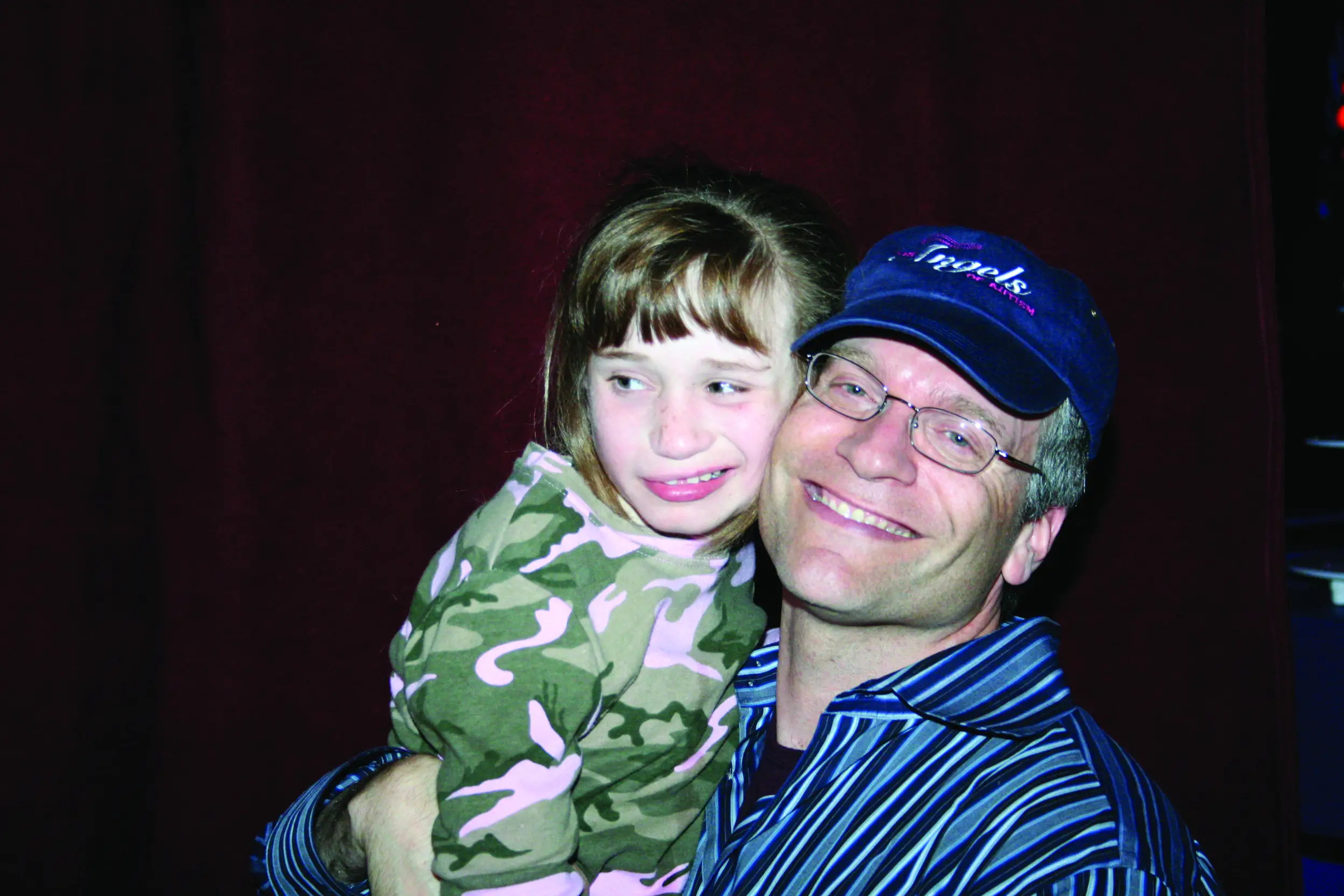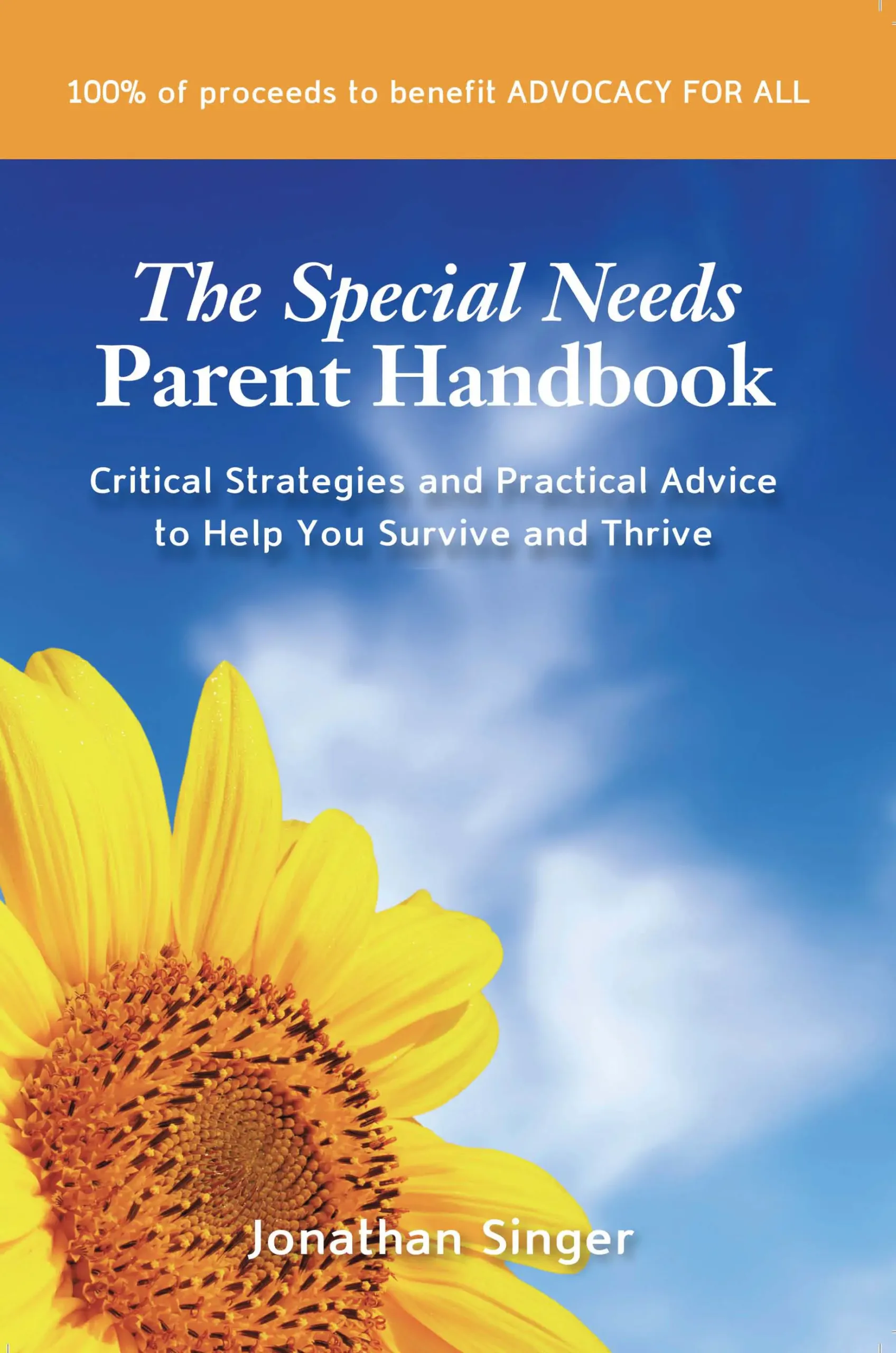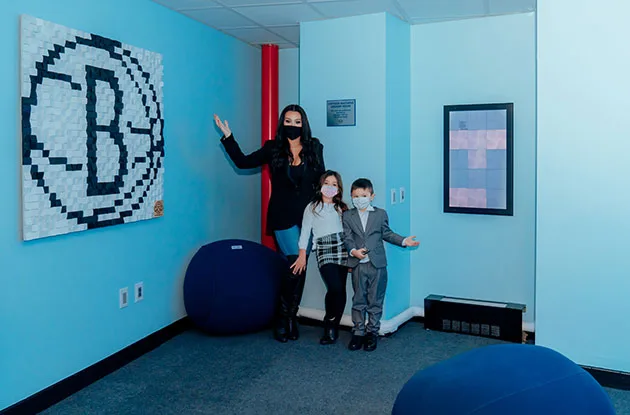Despite the obstacles—potential stares, insensitive comments from strangers—including your child with special needs in family outings, even everyday errands, is worth it. The father of a teen with Phelan-McDermid Syndrome shares his insights on how and why to make it work.
Jonathan Singer and his daughter Rebecca

Spending Time in Public Places
It is worth the hard work.
One of the greatest challenges for many families is taking their children to public places. It often takes a lot of time and practice for children with special needs to get acclimated to new places and situations. Unfortunately, some children and families never get a chance to succeed because after one exasperating experience they never again venture out in public together. You take your child somewhere and he or she makes a big fuss. Everyone stares, you feel embarrassment or shame, and your heart starts pounding. Some people make nasty or insensitive comments and make you feel really bad about your heroic attempt at normalcy. So you refrain from trying again. It can divide families because one parent stays home while the other takes the rest of the kids to public places. But try not to let that rough first outing hold you and your child back. Give it some time.
For me, it is more of an annoyance, rather than an embarrassment, when Rebecca is crying or being difficult in public. I sometimes feel really badly for her. She has no other way of communicating and must be really frustrated sometimes when her dad is dragging her all over the place. She may have a headache, she may be hungry, or she simply may not be in the mood for whatever it is we are doing, but she has no way of telling me except by crying or trying to get out of the situation.
Asking for Help
People will help.
It has always been relatively easy for me to take Rebecca places because I am not very concerned with what other people think about her behavior. I’m too busy focusing on keeping her safe, calm, and happy. In fact, when people stare I sometimes just give a really big wave and a loud, friendly “hello,” and that usually is the end of it.
One time I was with Rebecca in a very casual self-service seafood restaurant in City Island. It was a juggling act just getting all the food and drinks and Rebecca situated in a booth. Just when it looked like things were going really well, I dropped her straw on the ground. She was not very good at drinking out of a cup at the time, but I couldn’t leave her in the booth while I got a new straw because she might get up and walk away. And if I got up and took her with me, she would probably think it was time to leave and then it would be difficult to get her to sit quietly again to eat. I noticed a little boy staring at Rebecca, so I enlisted his help. I asked him if he could grab a straw for us. He was off and running, and came back in a few seconds, and all was well. (In general, I have found that kids are much more helpful and understanding than adults are.)
Finding Special-Needs-Friendly People and Places
There are so many welcoming people out there.
Several years ago Rebecca would frequently wake up at or before 6am, and when I tried to get her back to sleep she would cry or make a lot of noise. To keep the peace and avoid waking up the rest of the family, the only choice I had was to leave the house with her and go somewhere. We took walks or went places that were open early, like a local diner or Starbucks.
One morning Tommy Sherwood, the manager at the Starbucks, came up to me when I was reading books to Rebecca. He said he had seen us on many early mornings and wanted to learn how he and his associates could be more helpful to people with special needs. He took the time to ask a lot of questions, especially because he was starting a family. That Starbucks location became one of my favorite destinations with Rebecca, since I knew that the staff would be welcoming, friendly, and helpful.
Tommy and I became friends, and he helped with many fundraising events. One day he called and was very excited to share some news. He had hired Chris, a young adult with autism. And he said he never would have hired Chris if he hadn’t gotten to know Rebecca. He later told me that Chris ended up being one of his best employees because of his great memory, his attention to detail, and his great sense of humor.
We have learned that, with practice, Rebecca can handle practically any situation, and that is the case with many children. It takes time, a lot of patience on our part, and the help of kind people in the community. Look for loud restaurants where your noise won’t be very noticeable, or become a regular at places where you know the staff is friendly. Introduce yourself to the owner or manager and explain your situation. You will be pleasantly surprised that, more often than not, people are sympathetic, warm and welcoming, and they truly want to help.
We once discussed our situation with the manager of a local movie theater, and he let us take Rebecca to early shows that were not crowded. He agreed that if she wasn’t able to last very long he would give us our money back, and said that we could return and keep practicing until she was successful.
Our friends Faye and Glen spent a lot of time getting their son Max, who has autism, to feel comfortable spending time in a local restaurant. Eventually they became friendly with the manager, Bobbie, who was always nice to Rebecca when we stopped by. Bobbie, who had no children of his own, was so taken with Max that he volunteered to provide after-school vocational training to Max at his restaurant.
There are countless restaurants and other business establishments out there. If you are going to choose where to spend your hard-earned money, make sure that it is appreciated and that you are treated kindly, because you deserve it more than anyone.
Jonathan Singer is the founder of Drive4Rebecca, an initiative to help children with special needs by helping their families become stronger advocates. Singer lives in New Jersey with his family, including his 14-year-old daughter Rebecca, who suffers from a rare genetic disorder called Phelan-McDermid Syndrome, which causes autistic tendencies.

This article was excerpted from “The Special Needs Parent Handbook: Critical Strategies and Practical Advice to Help You Survive and Thrive” by Jonathan Singer ($14.99). All proceeds from the book benefit Advocacy for All, an initiative founded by Singer to help families advocate more effectively on behalf of their children with special needs.





















